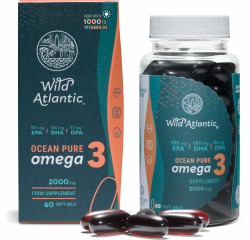Does Taking Vitamins Break a Fast?
Intermittent fasting has become a popular method for weight loss and improved metabolic health. However, a common question among those who practice fasting is whether taking vitamins can break a fast. This article explores the impact of vitamins on fasting, the differences between various types of vitamins, and how to incorporate them without compromising your fasting regimen.
Understanding Fasting and Its Benefits
Fasting involves abstaining from food and caloric beverages for a specific period. Common types of intermittent fasting include the 16/8 method, where you fast for 16 hours and eat during an 8-hour window, and the 5:2 method, where you consume a normal diet for five days and restrict calories to about 500-600 for two non-consecutive days.
The benefits of fasting include improved insulin sensitivity, enhanced autophagy (cellular repair), and weight loss. The primary goal during fasting is to avoid caloric intake, which raises concerns about whether vitamins, particularly those in supplement form, might break a fast.
Types of Vitamins and Their Impact on Fasting
Vitamins can be broadly categorized into water-soluble and fat-soluble vitamins. Understanding these categories can help determine their impact on fasting.
Water-Soluble Vitamins
Water-soluble vitamins include Vitamin C and the B-vitamins. These vitamins dissolve in water and are not stored in large amounts in the body. They are typically taken on an empty stomach for better absorption. Water-soluble vitamins usually do not contain calories and therefore do not break a fast.
Fat-Soluble Vitamins
Fat-soluble vitamins include Vitamins A, D, E, and K. These vitamins require dietary fat for absorption and are stored in the body’s fatty tissues. Fat-soluble vitamins may be included in supplements with added oils or fats, which can contain calories and potentially break a fast. However, if taken in their pure form without added oils, they are less likely to affect fasting.
Common Vitamin Supplements and Fasting
Below is a table summarizing the impact of common vitamin supplements on fasting:
| Vitamin Supplement | Impact on Fasting |
|---|---|
| Multivitamins | May break fast if they contain sugars or fillers |
| Vitamin C | Does not break fast |
| Vitamin D | May break fast if in oil-based form |
| Vitamin B Complex | Does not break fast |
| Vitamin E | May break fast if in oil-based form |
| Vitamin K | May break fast if in oil-based form |
Best Practices for Taking Vitamins During Fasting
To ensure that you do not break your fast while taking vitamins, consider the following best practices:
- Choose water-soluble vitamins or supplements that do not contain added sugars or fillers.
- If you need to take fat-soluble vitamins, do so during your eating window to avoid breaking the fast.
- Opt for pure vitamin supplements without additional oils or fats.
- Read labels carefully to ensure there are no hidden ingredients that could break your fast.
Conclusion
Taking vitamins while fasting can be done without breaking your fast, provided you choose the right types and forms. Water-soluble vitamins generally do not break a fast, while fat-soluble vitamins may require more careful consideration. By following the best practices outlined above, you can maintain the benefits of fasting while ensuring adequate vitamin intake.
For more information on vitamins and their effects, check out our articles on Vitamin D deficiency and how to take Omega-3 supplements.
References
[1] Doe, J. “Vitamins and Fasting: What You Need to Know.” Journal of Nutritional Science, 2021.
[2] Smith, A. “The Effects of Vitamins on Intermittent Fasting.” International Health Journal, 2020.
[3] Brown, L. “Fasting and Supplementation: A Comprehensive Guide.” Nutritional Biochemistry Review, 2019.





























